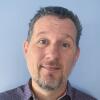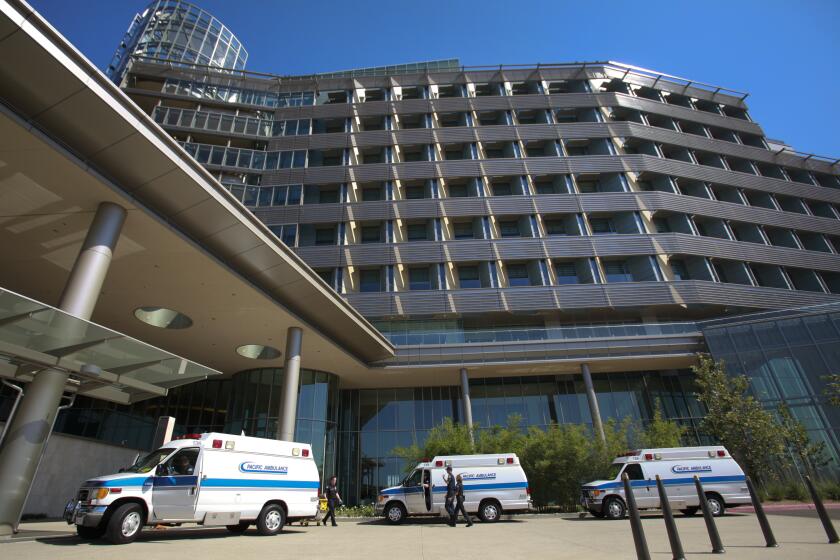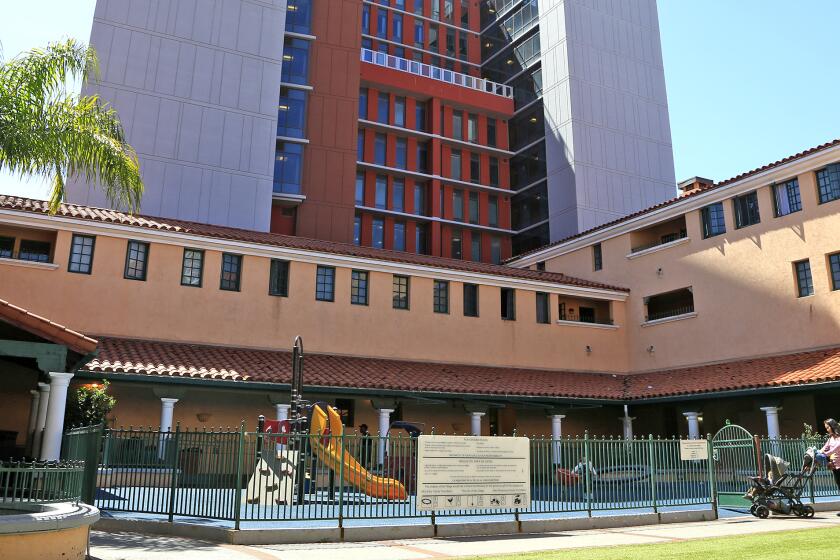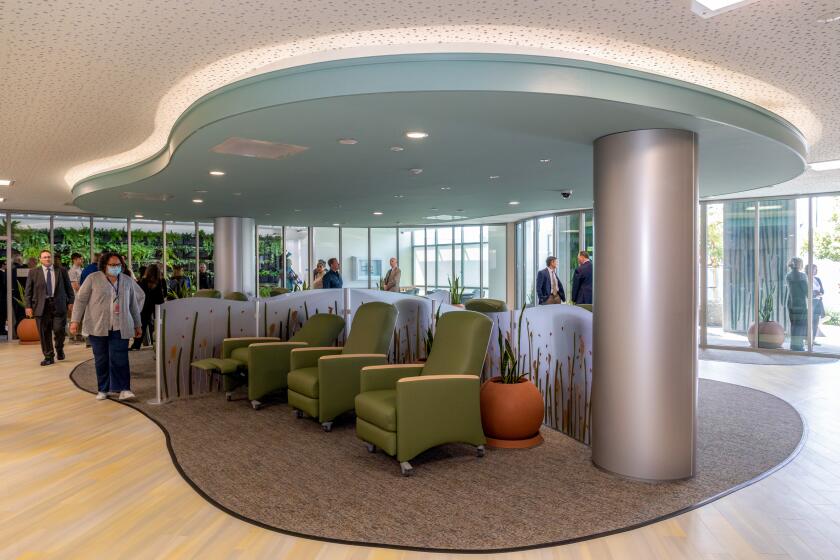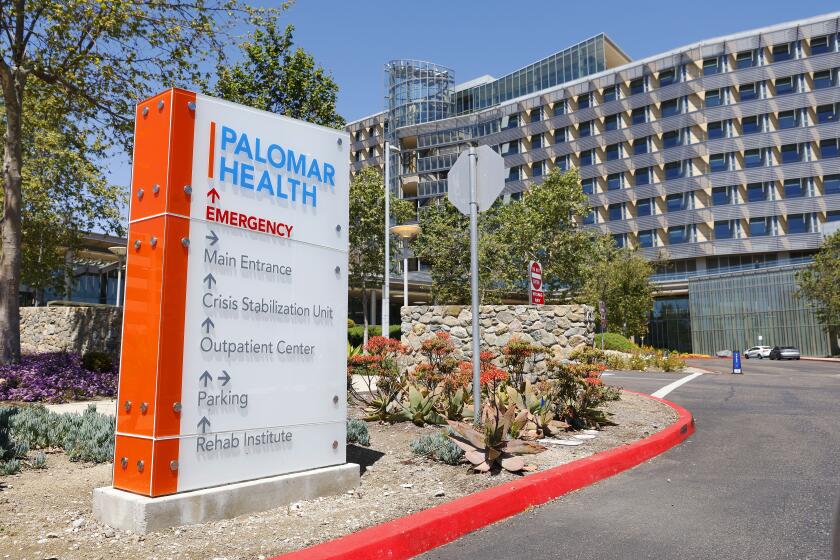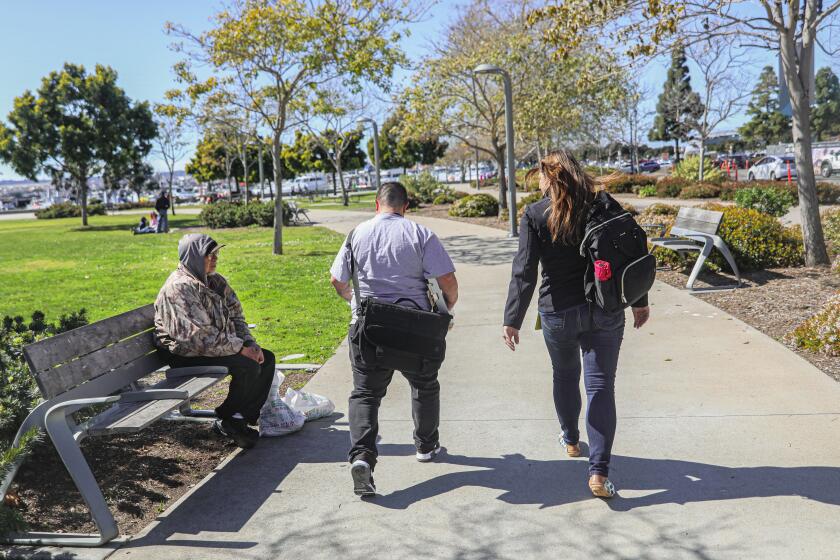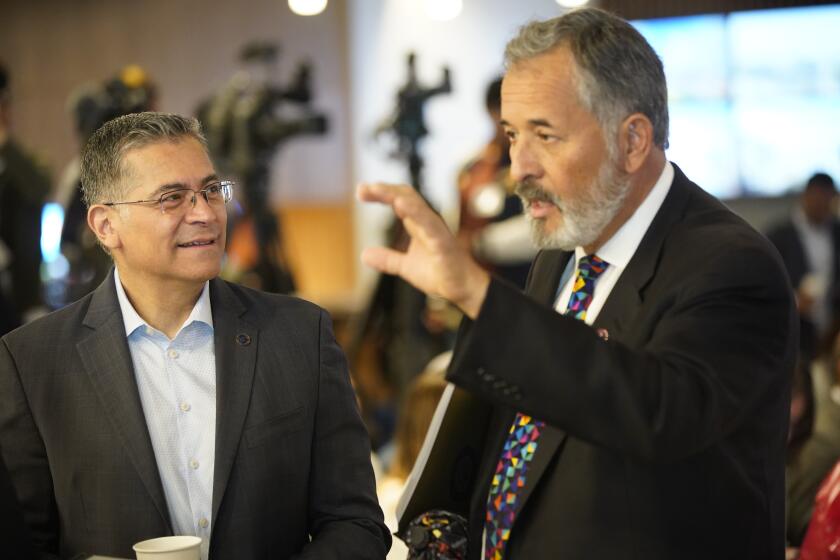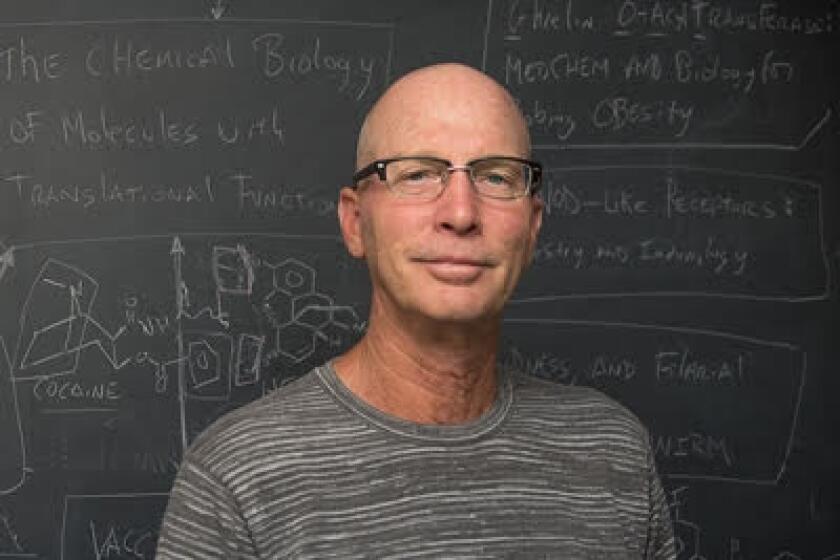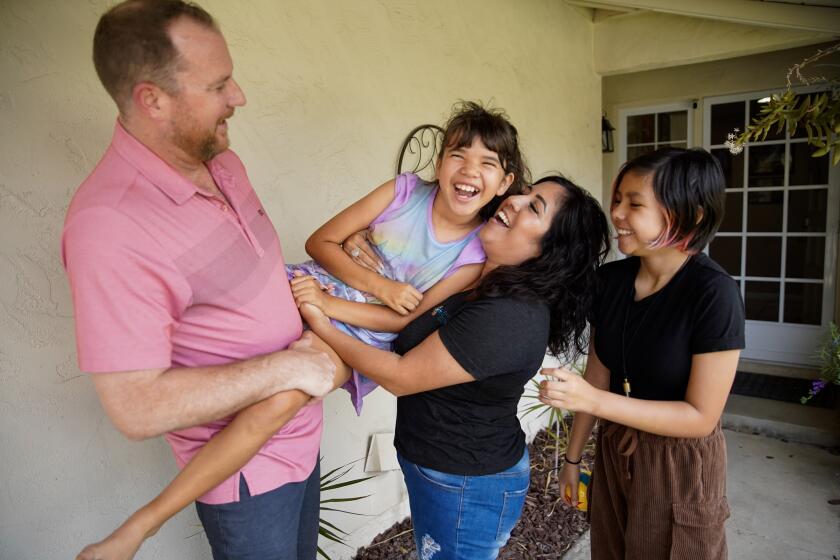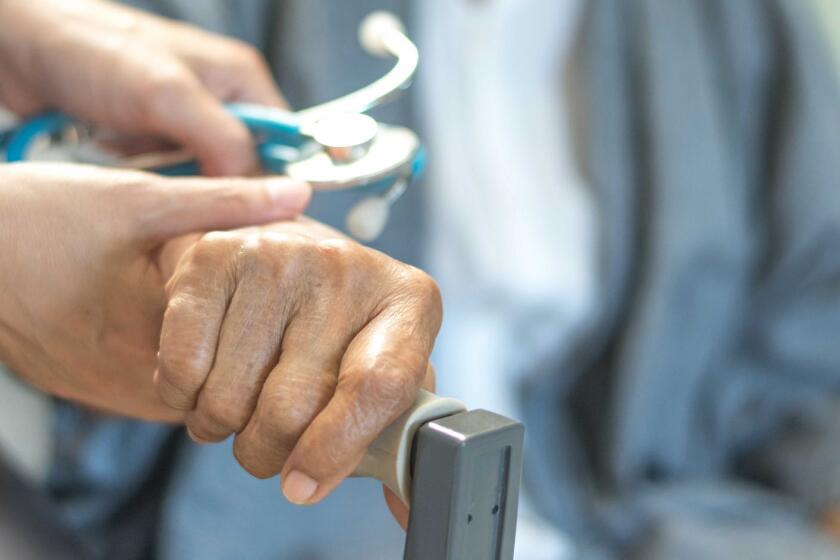Rady leader envisions national genetics program for pediatric diseases
Rady leader envisions national genetics program for pediatric diseases
3:40 p.m.
On Oct. 21, high-speed genetic sequencing spared a child from having to undergo surgery at Rady Children’s Hospital San Diego.
An infant with a life-threatening illness was about to enter the operating room when the baby’s doctor received a last-minute phone call.
“We called up and said, ‘Stop the operation,’” said Dr. Stephen Kingsmore, director of the Rady Children’s Institute of Genomic Medicine. An analysis performed in only three day’s time by the institute’s genetics team changed the newborn’s diagnosis, indicating that surgery was not needed.
This was exactly the kind of benefit Rady hoped for when it hired Kingsmore a year ago. The idea: For a subset of extremely ill babies with unexplained symptoms, rapid genetic testing could yield life-changing results.
Drawing on a $120 million gift from philanthropists Ernest and Evelyn Rady that made the institute possible, Kingsmore’s team recently purchased three machines from the San Diego-based company Illumina. The investment allows the hospital to sequence the DNA of a child and both parents in the three days — instead of the current standard of weeks or even months.
Since September, Kingsmore and his colleagues have sequenced 21 families’ DNA, and half of those cases have produced answers for all or most of the symptoms causing the newborns in question to be hospitalized. In five cases, sequencing has provided information that directly changed a patient’s care plan.
Kingsmore said the early results track with those he found in Kansas City, where he worked until coming to Rady Children’s, and at a hospital doing similar work in Australia. It’s enough of a pattern for him to believe all pediatric hospitals should have the ability to perform high-speed DNA sequencing.
“We’ve sent in a proposal to the MacArthur Foundation for $100 million over the next five years to put this capability into every children’s hospital in the United States,” Kingsmore said.
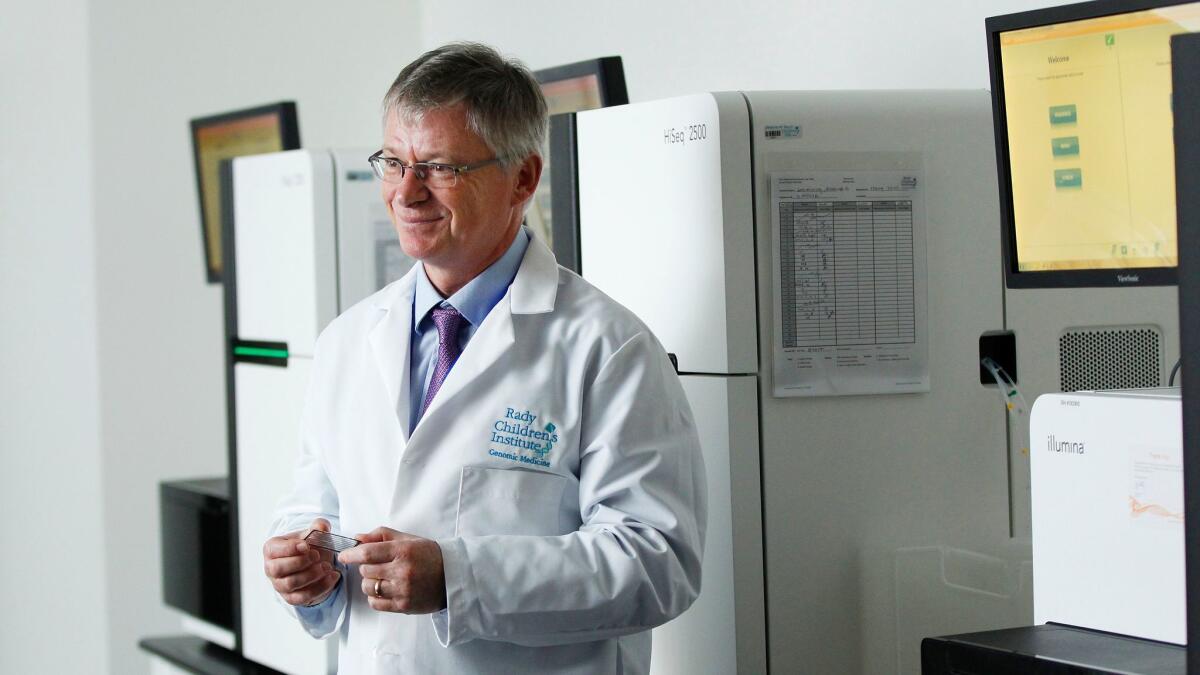
It’s an ambitious but worthy goal, said Dr. Ingrid Holm, a director in the Division of Genetics and Genomics at Boston Children’s Hospital. Holm, who is also an associate professor at Harvard University, said a three-day sequencing capacity would be welcomed and does far exceed what’s available in most places, including Boston Children’s.
She said for babies with unexplained symptoms who face life-threatening medical problems, high-speed sequencing does seem to be a real advantage — but mainly in cases where the infants are deteriorating rapidly and fighting for survival. In most instances, the timing is not that urgent.
“On the other hand, if you get that kind of treatment-changing result even in a small percentage of cases, that’s still a big deal. It’s potentially saving a life in every case,” Holm said.
There is also value in conducting one extremely broad-based genetic test rather than a series of cheaper but less comprehensive queries that can stress fragile infants and keep parents in a suspended state of worry longer than necessary, she said.
“It’s really hard on families, and I think that if you can do a diagnosis and know what you’re dealing with sooner, that’s going to make a huge difference for families even if there is not a huge difference in treatment. Ending that diagnostic odyssey sooner is better for families,” she said.
Amid those potential advantages, Holm said there is still a major hurdle to widespread adoption of the three-day sequencing turnaround occurring at Rady Children’s. Without a foundation to pay for the sequencing and subsequent analysis, which costs about $20,000 for a child and both parents, doctors usually must get pre-approval from each patient’s insurance carrier, a process that can take weeks to resolve.
“You spend a lot of time trying to get people to say that they’ll pay for it. That’s the big barrier,” Holm said.
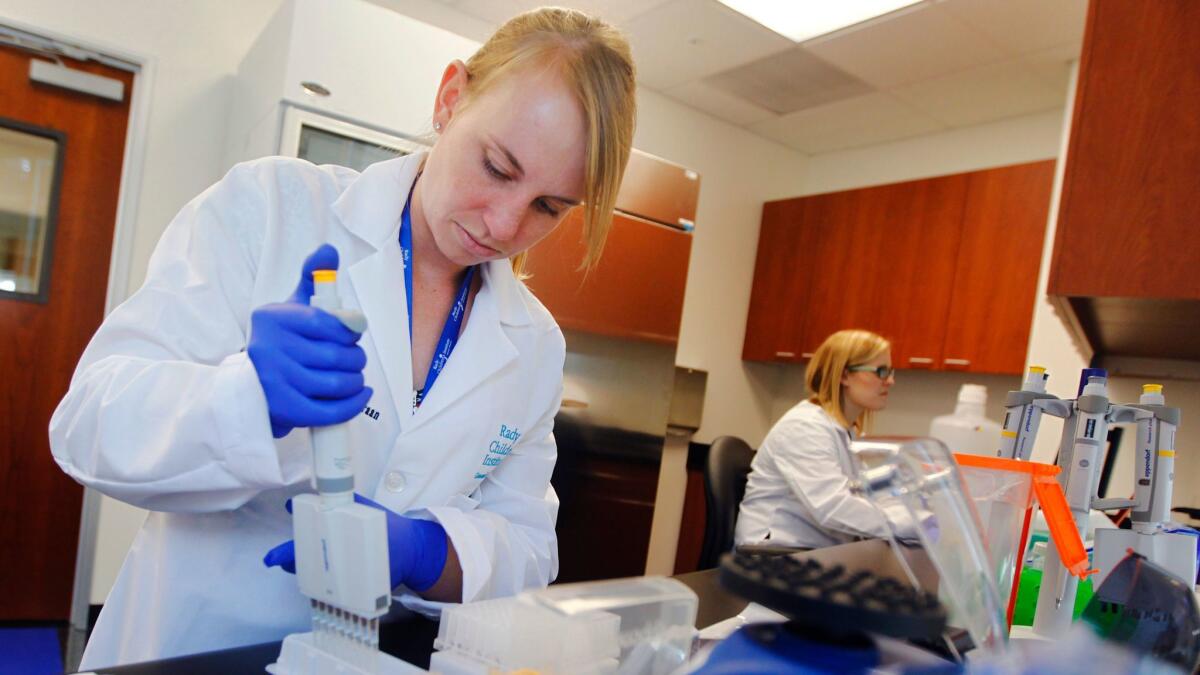
Rady Children’s genomics institute, supported by grants and philanthropy, is able to move forward using its own funds and leave the settling up with insurance companies until later.
Kingsmore has also assembled a team of experts, recruited from across the nation, to make sure a complete analysis happens quickly after sequencing is completed. He started working with computer scientists several years ago to develop software that can help analysts rapidly sift through the millions of pieces of data that emerge from comparing a child’s genome to his or her parents’.
Clinical lab director Shimul Chowdhury, hired away from Illumina to work at the institute on such analyses, said he has been amazed at what’s possible when an organization’s tools and procedures are built for speed.
“Our informatics tools do for us in 45 minutes what was taking 12 hours at Illumina,” he said.
It was Chowdhury who made the phone call that ultimately stopped the surgery on Oct. 21. He holds a doctorate in interdisciplinary biomedical sciences but is not a medical doctor. He does not routinely work at the patient’s bedside, so having the chance to use data to participate so directly in a person’s care has been exhilarating, he said.
“It’s the reason we are all here. It makes it real. It keeps you motivated to come in every day for that next case that might be just as critical or more critical to the families,” Chowdhury said.
At the moment, Rady Children’s cannot share more details about the babies who have participated in the sequencing program. Because many of these infants have rare diseases, the hospital’s attorneys have forbidden the disclosure of their ages, gender or diagnoses for fear that doing so might make it possible to identify them, violating their rights to medical privacy.
Kingsmore said as more patients undergo the DNA sequencing, denominators will grow and it will be possible to release more comprehensive information. Parents are also able to come forward on their own and tell their stories if they wish.
In the meantime, the institute is poised to start a large randomized clinical trial that explores the advantages of sequencing a patient’s whole genome versus a more limited test that looks only at the exome, the suspected region of origin for many genetic diseases. Kingsmore said the plan is to enroll about 500 children and see whether the extra cost of whole-genome sequencing delivers a significant benefit over the cheaper exome test.
He envisions a central role for the Institute if his vision of spreading rapid sequencing to other pediatric hospitals takes root. He said the sequencing would likely be done at individual hospitals or regional centers, while the analysis of resulting data could be transferred over fast Internet pipes and analyzed in San Diego.
“I do feel that the Internet gives us the ability to be, kind of, the brain here in San Diego for the whole country,” Kingsmore said.
The brain power for such analysis exists in many other places, he said, but it takes a specialized team to examine pediatric genetic data. He believes establishing a genomics team like the one at Rady Children’s would be cost-prohibitive for some hospitals.
paul.sisson@sduniountribune.com
(619) 293-1850
Twitter: @paulsisson
Get Essential San Diego, weekday mornings
Get top headlines from the Union-Tribune in your inbox weekday mornings, including top news, local, sports, business, entertainment and opinion.
You may occasionally receive promotional content from the San Diego Union-Tribune.
